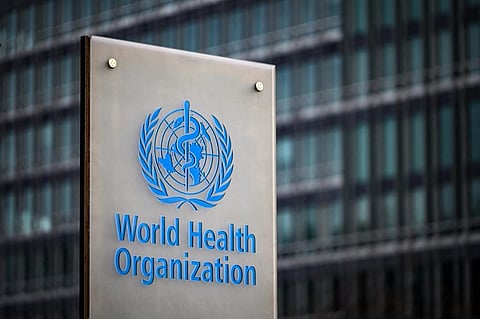

NEW DELHI: Hours after the World Health Organisation (WHO) issued a global alert over four India-made cough syrups linked to the deaths of 66 children in The Gambia, the Central Drugs Standard Control Organisation (CDSO) launched an urgent investigation into the matter.
The cough syrup by New Delhi-based Indian pharmaceutical company Maiden Pharmaceuticals is not sold in India but is being exported.
The WHO on Wednesday flagged four "contaminated" and "substandard" cough syrups made by Maiden Pharmaceuticals Limited - whose two manufacturing units are based in Haryana, while the corporate office is in Pitampura, New Delhi. WHO said the company, whose website is now unavailable and phones not reachable, failed to guarantee their safety.
The world body also said the syrups have been "potentially linked with acute kidney injuries and 66 deaths among children.”
The four cough and cold syrups are Promethazine Oral Solution, Kofexmalin Baby Cough Syrup, Makoff Baby Cough Syrup and Magrip N Cold Syrup.
Laboratory analysis of samples of each of the four products confirms that they contain unacceptable amounts of diethylene glycol and ethylene glycol as contaminants. To date, these four products have been identified in The Gambia but may have been distributed, through informal markets, to other countries or regions, the WHO said.
Diethylene glycol and ethylene glycol are toxic to humans when consumed and can prove fatal. Harmful effects can include abdominal pain, vomiting, diarrhoea, inability to pass urine, headache, altered mental state, and acute kidney injury, which may lead to death.
Officials said CDSCO has already undertaken an “urgent investigation” into the matter with the Haryana Regulatory Authorities, where the manufacturing units are located, immediately after receiving communication from WHO.
"The CDSCO, while responding to WHO, within an hour-and-a-half, took up the matter immediately after that with the concerned State Regulatory Authority, under whose jurisdiction the drug manufacturing unit is located. Further, a detailed investigation was launched to ascertain the facts or details in the matter in collaboration with the State Drugs Controller, Haryana," the officials added.
"WHO has been requested to share at the earliest with CDSCO the details on the labels and products," the sources said, adding that they have also sought information on certificates of analysis to be shared with India. Preliminary investigations showed that the company held manufacturing permission for these products and exported them to The Gambia.
Officials also said that importing countries must test products on quality parameters before releasing the batches in the market for sale. "It is a practice that importing countries first test the quality parameters and then allow its usage after they are satisfied," official sources added.
According to Rajeev Singhal, General Secretary of All India Organisation of Chemists and Druggists, the company is not selling cough syrups in the domestic market.
"The company doesn’t market in India; they are only in exports. We have also asked the Drugs Controller General of India (DCGI) if they need to give us any instructions which need to be conveyed to our 9 lakh chemists. We will not allow such medicines to be sold in India," he told The New Indian Express.
Dr Viranchi Shah, President Indian Drug Manufacturers’ Association (IDMA), said that the pharma company is not a member of IDMA. "It is a serious issue. We are waiting for the investigation to know what went wrong. We had not heard of this company and their operations," he said.
The company was started in 1990.
Dr Pawan Kumar, General Paediatrician at Madhukar Rainbow Children’s Hospital, Delhi, said oral administration of Diethylene glycol could result in renal and neurological toxicity.
"Diethylene glycol is a colourless chemical with a sweet taste that’s toxic when ingested by humans. It's a solvent for water-insoluble drugs and chemicals, and it's used to make products such as cigarettes, antifreeze, lubricants, brake fluids, cosmetics and wallpaper strippers," the doctor said.
He added that because of its toxicity, it's not allowed in food or drugs. "But because of its solubility, some drug makers have inappropriately substituted it for nontoxic ingredients, such as glycerin, in pharmaceuticals such as cough syrups and acetaminophen," he said.
The WHO has warned that using these cough syrups may result in severe injury or death, especially among children.
The WHO issued the alert after medical authorities in The Gambia detected an increase in cases of acute kidney injury among children under five in late July. The government has since then suspended the use of all paracetamol syrups and has urged people to use tablets instead. The sale of products made by Maiden Pharmaceuticals has also been banned.
WHO chief Tedros Ghebreyesus on Wednesday said: "The loss of these young lives is beyond heart-breaking for their families."